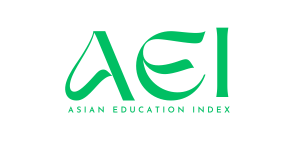Speech Development Factors in Surdopedagogy
Keywords:
Surdopedagogy, speech development, hearing impairment, communication, linguistic competence, pedagogy, speech therapy, inclusive education.Abstract
Speech development in children with hearing impairments is one of the most complex yet crucial areas of special pedagogy. Surdopedagogy – the science of educating and developing children with hearing loss – emphasizes the systematic integration of linguistic, cognitive, social, and technological factors that promote communication competence. This paper analyzes the main internal and external factors that influence speech development among deaf and hard-of-hearing learners, focusing on psychological, linguistic, environmental, methodological, and technological determinants. It also discusses the pedagogical implications for modern surdopedagogical practice in inclusive and specialized settings.
References
1.Vygotsky, L.S. (1987). Thinking and Speech. MIT Press.
2.Boskis, R.M. (1963). Speech Formation in Deaf Children. Moscow: Pedagogika.
3.Zykov, S.A. (2018). Modern Surdopedagogy: Methods and Innovations. Moscow: Logos.
4.Hallahan, D. P., Kauffman, J. M., & Pullen, P. C. (2021). Exceptional Learners: An Introduction to Special Education. Pearson.
5.Marschark, M., & Spencer, P. (Eds.). (2016). The Oxford Handbook of Deaf Studies in Language and Education. Oxford University Press.
6.World Health Organization (2023). World Report on Hearing. Geneva: WHO.
7.Golos, D. B., & Moses, A. M. (2013). "Developing Language and Literacy Skills of Deaf and Hard-of-Hearing Children through Storytelling and Play." Early Childhood Education Journal, 41(5), 327–334.
8.Tikhonova, E.N. (2020). "Pedagogical Factors of Speech Development in Children with Hearing Disorders." Defectology Journal, 6(2), 45–52.











